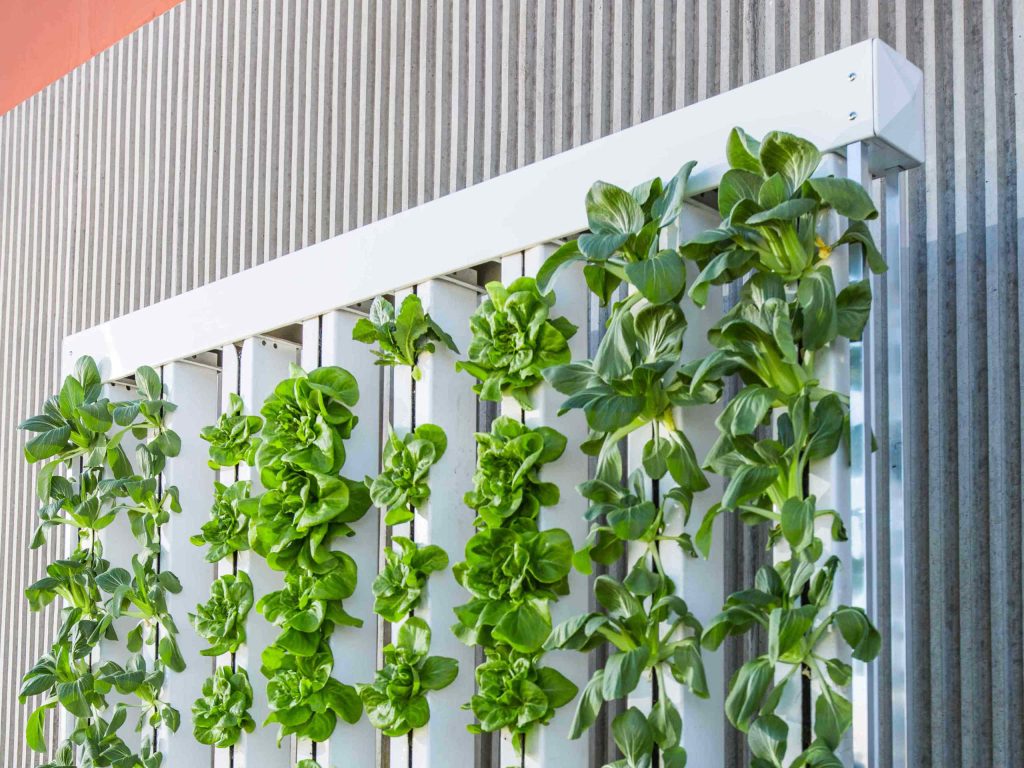
Farm-to-table and hydroponic systems are two innovative concepts that enable sustainable agriculture and more environmentally friendly food production. In recent years, the demand for fresh, locally produced food has increased as consumers are increasingly concerned about healthy eating and are interested in the origin of their food. At the same time, agriculture is facing challenges such as climate change, water scarcity and soil pollution.
Farm-to-table initiatives and hydroponic systems offer solutions to these problems by enabling more efficient and environmentally friendly food production. Farm-to-table initiatives encourage collaboration between local farmers and restaurants to bring fresh and seasonal produce directly from the farm to the table. Hydroponic systems, also known as artificial cultivation, enable more efficient use of resources such as water and nutrients by growing plants without soil.
More and more terms such as home-grown or home-made can be found on menus: lemonades, honey, even home-made balsamic vinegar - guests love the hyper-regional, i.e. ingredients straight from the windowsill and backyard garden.
Garden herbs are now the entry point into the complex world. They fit on the windowsill or in a narrow shelf. The next step up is planters in front of a restaurant or store. This is where things get a little more challenging. The more soil or substrate, the better. In any case, it should remain decorative and well-maintained to whet the guests' appetite for more. And for the expert, it's hydroponics. Hydroponics is the growing and cultivation of ornamental and crop plants in a hydroponic system in which the roots of a plant are suspended in a nutrient solution, a mixture of water and nutrients dissolved in it.
One of the successful concepts is Good Bank in Berlin. They grow lettuce in their own vertical farming system. The demand for vertical farming is constantly increasing, both in the private sector and in restaurants. Lettuce is perfect for this. A wonderful example is the Steirereck: Pogusch PPAG architects have planned two glass houses on a slope. One of them is unheated, the other is heated. The variety of plants can not only be enjoyed on the plates, but also during an overnight stay.
More and more people are interested in where their food comes from and are prepared to pay for it. Growing your own food can be easy. With herbs and edible flowers such as marigolds, lavender, nasturtiums, chives, ornamental leeks and much more. Overall, farm-to-table is an opportunity for every restaurateur to offer high-quality, seasonal food that comes from the region. It also allows restaurateurs to raise awareness of healthy eating and strengthen the relationship between restaurant and customer.

Jamie Oliver shows how healthy eating doesn’t mean sacrifice, but rather a joy of life. With 120 recipes, 50 practical hacks, and a 2-week kickstarter plan, the book proves that conscious enjoyment, energy, and taste go wonderfully together—uncomplicated, suitable for everyday use, and inspiring.
INFO
Eat Yourself Healthy
Author: Jamie Oliver
Translation: Helmut Ertl
Publisher: DK Verlag
Length: 320 pages
ISBN: 978-3-8310-5230-1
Price: €32.00
The World’s 50 Best Restaurants Awards are making history: for the first time, the prestigious awards ceremony will take place in Abu Dhabi in 2026. What this means for the international gastronomy scene, why the location is a strategically wise choice, and what impetus this will provide for hospitality, fine dining, and global food trends.
When more than 275 star chefs gather at the Mercedes-Benz Museum in Stuttgart, it’s more than just a gala event. It creates a powerhouse of culinary art – concentrated, condensed, highly professional. The ahgz Star Awards 2026, presented during the “Night of Stars,” impressively demonstrated how strongly top-class gastronomy is networked in German-speaking countries – and how willing it is to reflect on itself.


Farm-to-table and hydroponic systems are two innovative concepts that enable sustainable agriculture and more environmentally friendly food production. In recent years, the demand for fresh, locally produced food has increased as consumers are increasingly concerned about healthy eating and are interested in the origin of their food. At the same time, agriculture is facing challenges such as climate change, water scarcity and soil pollution.